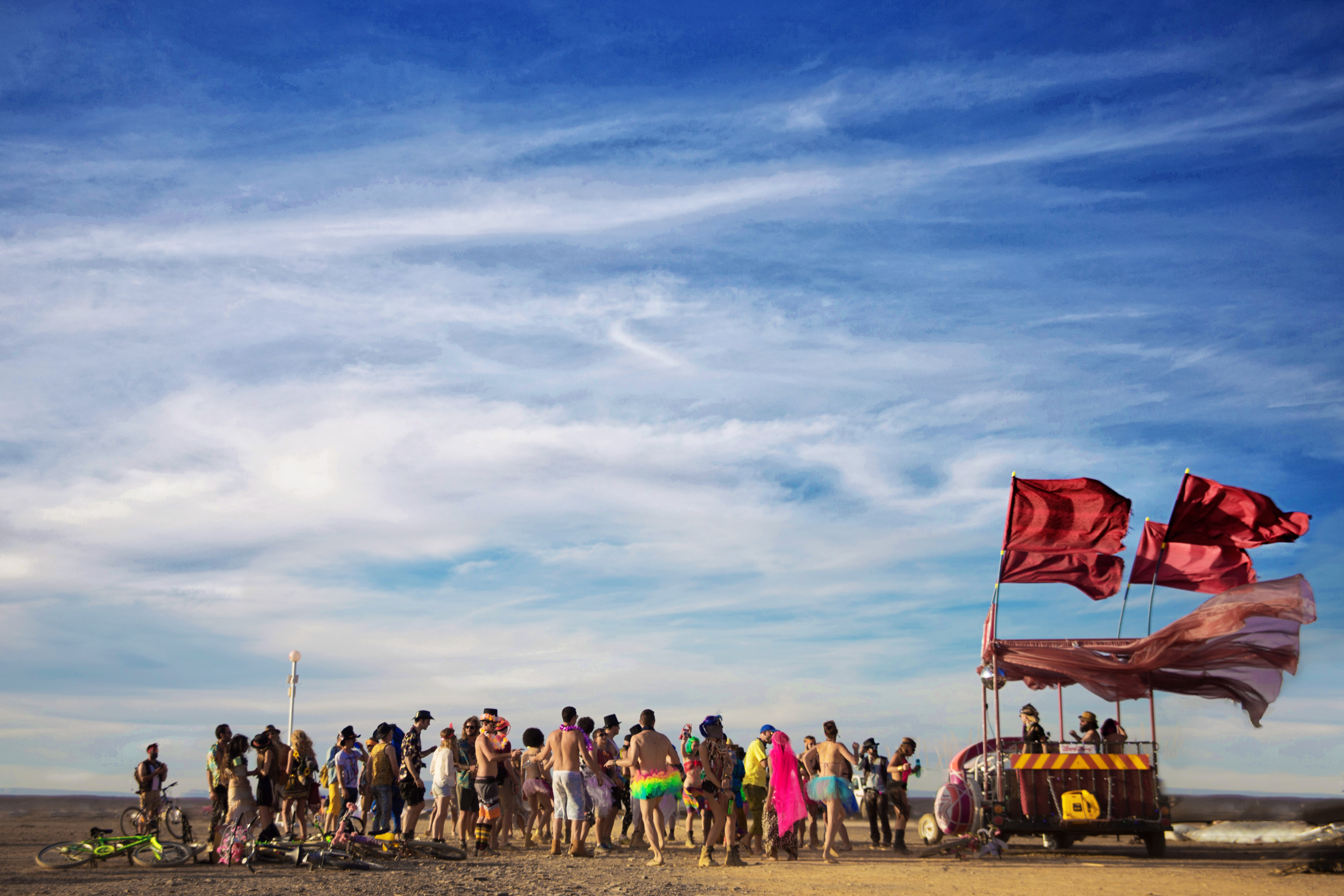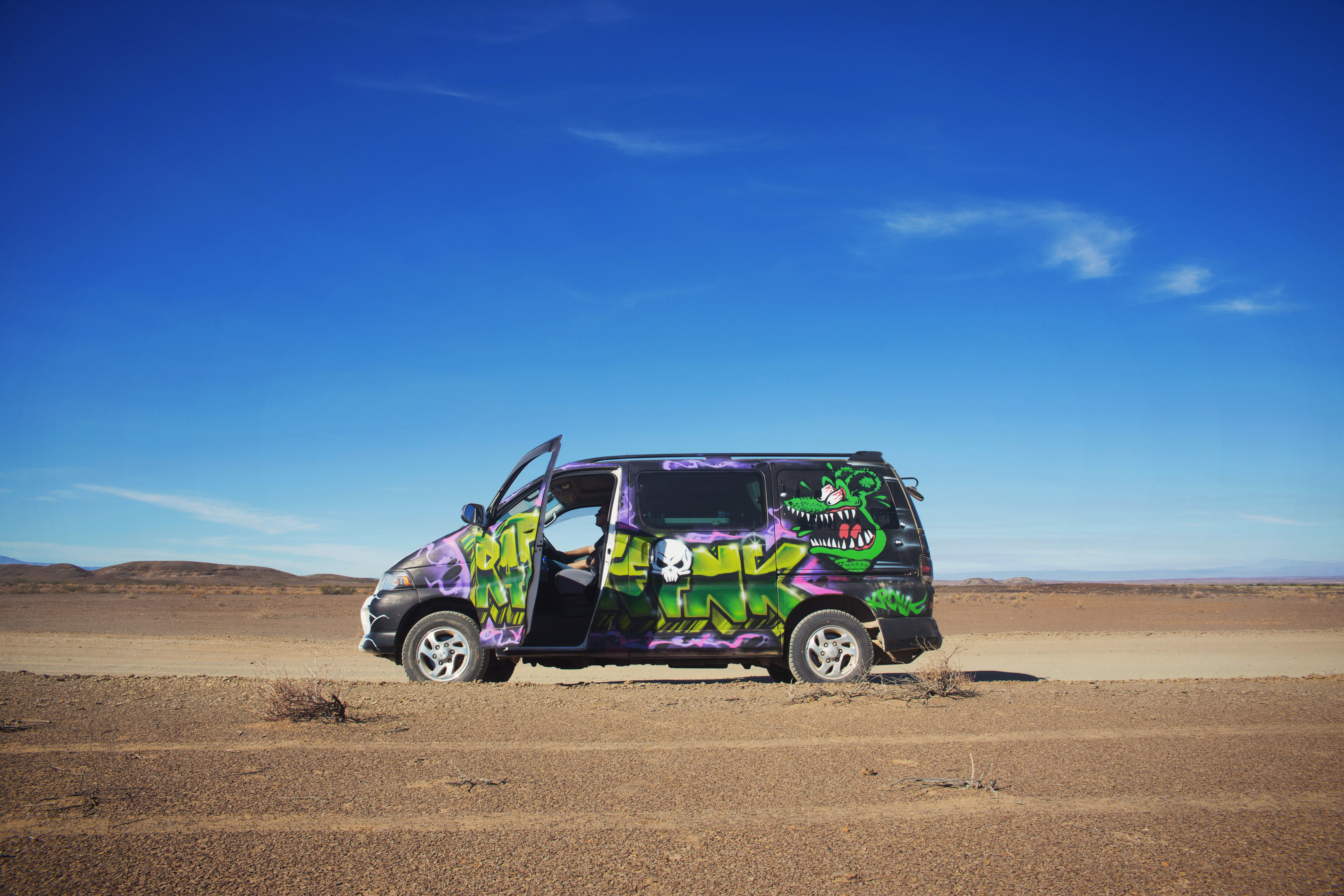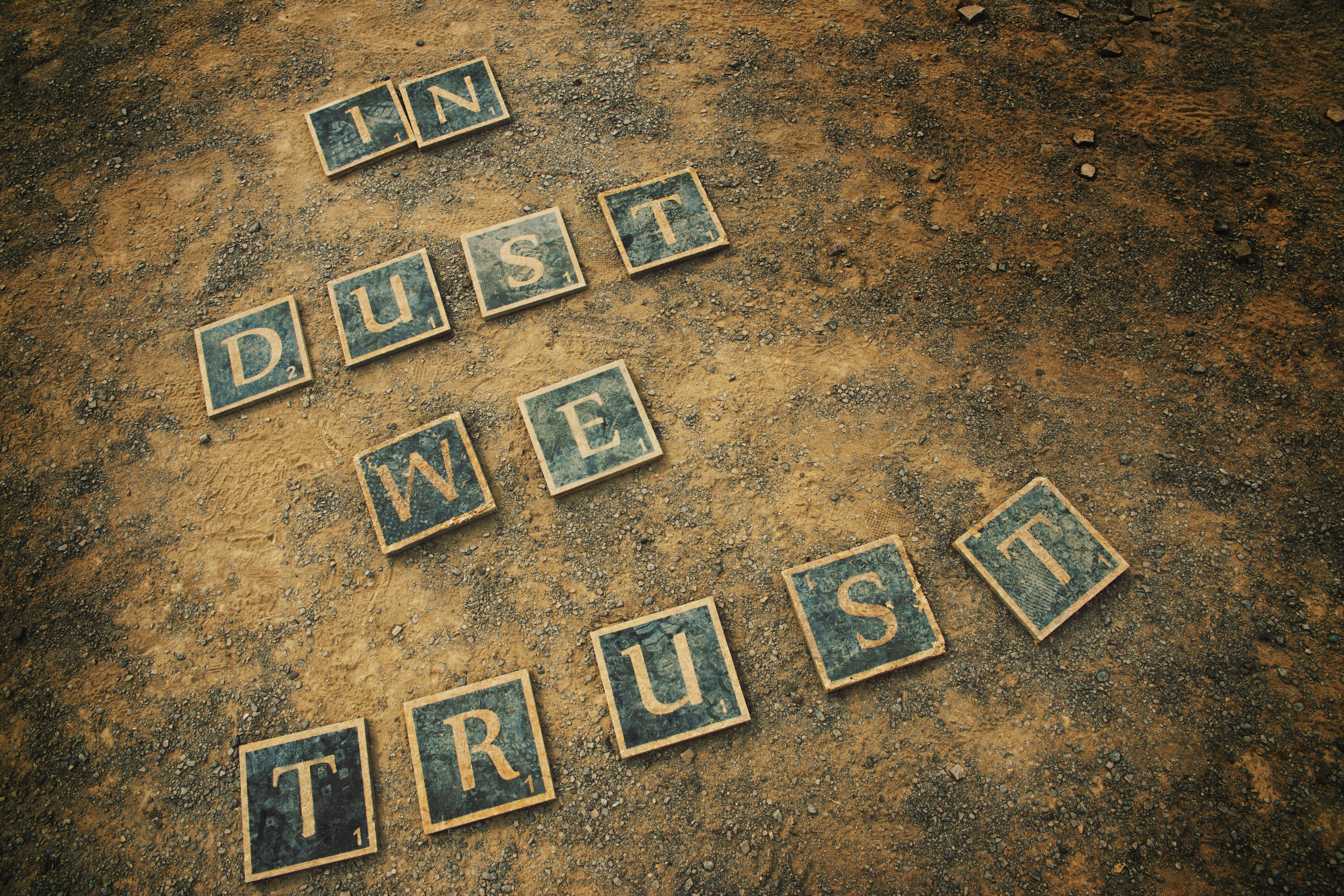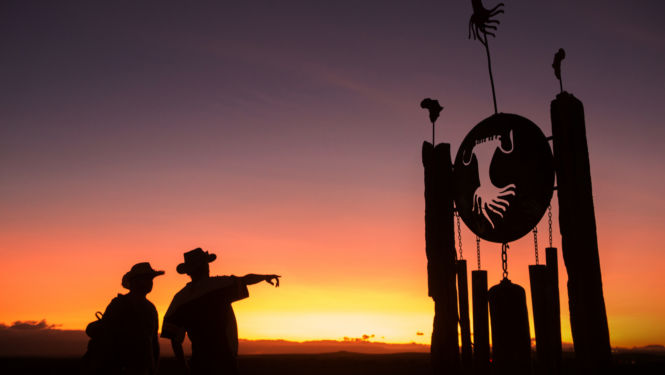With apocalyptic input from Monique Schiess
Of the many characteristics that define our community, resilience is way up there. Under extremes of heat, dust and cold in harsh remote locations, we adapt by developing strategies for survival, personally and collectively. It’s what we do: voluntary survivalism has been the generator of necessary invention since Zone Trip #4 (and long before), and it’s the same spirit of “We’ll make it happen” that’s happily infected a growing number of Regionals across the globe, including AfrikaBurn.
I’ve heard this practice described as “recreational apocalypticism” — and as the world teeters on the edge of an increasingly apocalyptic-looking precipice, it feels a little like we’ve hit that arm-wheeling moment just before freefall. So, when served some serious curveballs, what has AfrikaBurn learned, and how has it responded?

#1: Drought-Sized Portions Have Been the New Normal Since Forever
Cape Town in South Africa is facing the sharp end of a three-year drought right now, and there’s a fair bit of End of Days murmuring doing the rounds. Enough people are saying “Taps are going to run dry” and “Shit has become real” that it’s tempting to wonder whether this particular apocalypse isn’t so recreational anymore. So, is the city out of water already? Actually, no — the looming Day Zero has been pushed back to 2019. For those whose geography may be a little hazy, Cape Town is the southernmost city in Africa, but it’s not where the AfrikaBurn event is held. That’s 200 miles north, in the Tankwa Karoo, which, even though it’s an arid region, is presently subject to fewer water restrictions than the Western Cape, the province of which Cape Town is the capital. Of course, bottled water (available at supermarkets in five-liter containers) is still available, and AfrikaBurn’s comms to our community suggests investigating the sources of that, to make ethical choices when stocking up before hitting the road.
So how is the community in South Africa handling the situation? Nobody’s letting the drought dampen their spirits or curtail plans to build the 12th iteration of Tankwa Town, because out there, drought rations have been the standard since way before water levels in dams fell. In other words, the “new normal” for everyone else has just been plain old normal for your average AfrikaBurner since the event began in 2007. In fact, most of us are probably ahead of the game for owning a stash of water containers and knowing how to take water rations in stride. After all, the AfrikaBurn Survival Guide says each person should plan for five liters of water per person per day, way below the guidelines levels given to residents of Cape Town.

#2: When the Going Gets Bumpy, the Bumped Turn It Around
Imagine an 80-mile dirt road composed of fragments of shale that chew through tire sidewalls like marshmallows. Bask that badass in baking hot African sun (as in, above 110 degrees, regularly) and throw insane whiteout winds at it. That’s the road to AfrikaBurn — and in case that’s not extreme enough, here’s the kicker: there’s no phone signal. Nada. It’s a rough road, and even in quiet times, when it’s just lone farmers’ trucks hauling up and down the length of it, accidents happen. Chuck 13,000 people in inadvisably overloaded vehicles at it, some of them at high speed, and the chance of accidents grows. During the 2017 exodus from the AfrikaBurn event, a perfect storm of factors arose that contributed to some collisions, including heavy dust and poor visibility. Thankfully people walked away unharmed from most of the accidents, but very sadly a worker from a nearby farm died after a convoy of vehicles leaving the event site came over a blind rise, resulting in a head-on collision. To assist the family affected by the accident, the AfrikaBurn community and organization created a funding drive that’s sent significant assistance to a family whose breadwinner was lost in a tragic accident.
Changing this picture requires a multi-pronged approach with months of planning and many meetings with local law enforcement and road authorities. To be fair, the usual volume of traffic on the road is around a dozens cars on a good day (over a stretch of road 200 miles long, end to end). It takes a fair amount of convincing to get skeptical country lawmen to deploy the manpower required to slow thousands of cars down safely on a road they consider a ghost highway, but that’s how it’ll work this year. Grading of the road surface (to smooth it out) will happen soon too, ahead of the bulk of traffic to the event site, and that promises to make the journey safer. The going may have been rough, but everyone involved is determined to turn the situation around.

#3: When the Plague Comes Knockin’, Design Toilets That Are Rockin’
Of course, it wouldn’t be a proper apocalypse if there wasn’t at least some measure of plague and pestilence. Thanks to a Patient Zero who unwittingly gifted the norovirus, AfrikaBurn 2017 was a shitshow for some. Norovirus? It’s the same virus that recently took down over 200 people at the PyeongChang Winter Olympic Games in Korea (and is known to enjoy the occasional luxury cruise, too). Faced with the challenge of creating a better sanitation solution that a) didn’t involve pit toilets, b) presented far less of an opportunity for flies to spread germs, and c) was super water-saving on account of the drought, AfrikaBurn consulted a community member who’s been a sanitation engineer for 20 years and collaborated on the design of a new toilet. The resulting unit is built from 98% recycled material and uses a fraction of the amount of water that porta-potties require, with hand sanitizer built into every unit. Right now, AfrikaBurn DPW are deploying just under 200 of these new toilets ahead of this year’s event, which opens gates on April 23. Plague? That sucker’s on the back foot this time round.
If the first 18 years of the 21st century are anything to go by, nothing’s going to be easy, and we can all expect to be served an increasing avalanche of curveballs. If that’s the new normal, well, we can all thank our lucky stars that we’ve practiced heading into extreme environments to test our limits, keeping it only nearly fatal, and been given safe spaces to practice recreational apocalypticism. Turns out we’re good at doing the end of the world, whether in South Africa or everywhere else our culture thrives.
If you’re headed to the 2018 AfrikaBurn event, get the latest updates on water on the Waterwise page of their site, and if it’s tickets you’re after, dig into their info here to weigh your options.
(Top photo by Zac Cirivello)


This experiment is real. Its the African Hubble telescope. Myopic at first and then the universe in Technicolor after a few tweaks.
A pie in the sky with gravy.
Report comment
Do not under estimate the R355, that is the dirt road leading to Tankwa Town. It has no respect for any tyres, 4x4s included. There are many of the elusive Karoo Stofadil’s at the side of the R355 waiting for new victims
Report comment
Comments are closed.